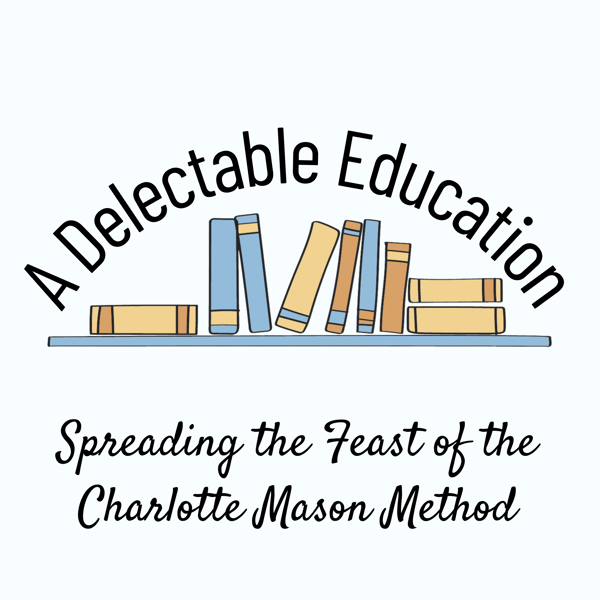Episode 21: Nature Lore
A Delectable Education Charlotte Mason Podcast
Nicole Williams
5 • 1K Ratings
🗓️ 19 February 2016
⏱️ 20 minutes
🧾️ Download transcript
Summary
This podcast episode explains Charlotte Mason's use of nature lore books and how they expand outdoor nature study work. Listen for lots of hints of our favorite such books.
Listen Now:
If you are seeing this message, please make sure you are using the most current version of your web browser: Internet Explorer 9, Firefox, Chrome


"Our main dependence is on books as an adjunct to out-of-door work...In [these] books the children are put in the position of the original observer of biological and other phenomena. They learn what to observe, and make discoveries for themselves, original so far as they are concerned. They are put in the right attitude of mind for scientific observations and deductions, and their keen interest is awakened." (Vol. 3, p. 237
"The real use of naturalists' books is to give the child delightful glimpses into the world of wonders he lives in, reveal the sorts of things to be seen by curious eyes, and fill him with desire to make discoveries for himself." (Vol. 1, p. 64)

If you would like to study along with us, here are some passages from The Home Education Series and other Parent's Review articles that would be helpful for this episode's topic. You may also read the series online here, or get the free Kindle version from Fisher Academy.
The Charm of Nature Study, Parents' Review Article


























(Contains affiliate links)
Transcript
Click on a timestamp to play from that location
| 0:00.0 | The Oh, Thanks once again for joining us on a delectable education, the podcast that |
| 0:34.2 | spreads the feast of the Charlotte Mason method. I'm Emily Kaiser and I'm here |
| 0:38.6 | with Nicole Williams and Liz Kertrill and we are in the midst of a multi-week exploration of nature study in the |
| 0:46.7 | Charlotte Mason method. |
| 0:48.2 | Last week we talked about the very basics about nature study itself and today we're going to start looking at the kinds of books |
| 0:55.1 | that would supplement our nature study and Mason called these things nature |
| 0:59.7 | lore. So you know lore can mean a lot of things to a lot of people. So why don't we start out and define some terms here and, |
| 1:08.0 | mom, why don't you tell us exactly what we mean by nature lore? |
| 1:11.0 | Well, this was a little confusing to me in the early days of figuring out |
| 1:16.7 | what Charlotte Mason had us cover with our children, because to me, Lour was closer to what the dictionary we would define as legends and fairy tales and you |
| 1:27.4 | know I think of anthropomorphic stories you know about mice and their adventures and things like that as being nature lore but her idea was much broader than that and not exactly what we would think of. |
| 1:41.0 | There might be an animal in a story that has a name just to help |
| 1:46.2 | the children have a picture, but still it is more straightforward information. They are made more palatable for children like the Eyes and No Eyes series |
| 1:56.2 | that she used but basically we're talking about books written by naturalists who are passionate about their |
| 2:06.2 | subject, about plants and animals, and other earth science topics. |
| 2:11.5 | They write with enthusiasm and not just information. |
| 2:16.5 | And I can say from personal experience I didn't get excited about science or the science section |
| 2:21.0 | in our library until I started reading some of these nature lore books for myself. |
| 2:25.7 | Yeah, and they just span ages. They're so interesting for the little kids and the big kids and me. |
| 2:40.0 | So we use nature lore to supplement and undergird our nature study for some very specific reasons in Mason's mind. |
| 2:41.6 | We all know that we get experiences through reading books |
| 2:45.0 | that beyond what we can actually have in real life and that I believe is the core |
... |
Please login to see the full transcript.
Disclaimer: The podcast and artwork embedded on this page are from Nicole Williams, and are the property of its owner and not affiliated with or endorsed by Tapesearch.
Generated transcripts are the property of Nicole Williams and are distributed freely under the Fair Use doctrine. Transcripts generated by Tapesearch are not guaranteed to be accurate.
Copyright © Tapesearch 2025.

